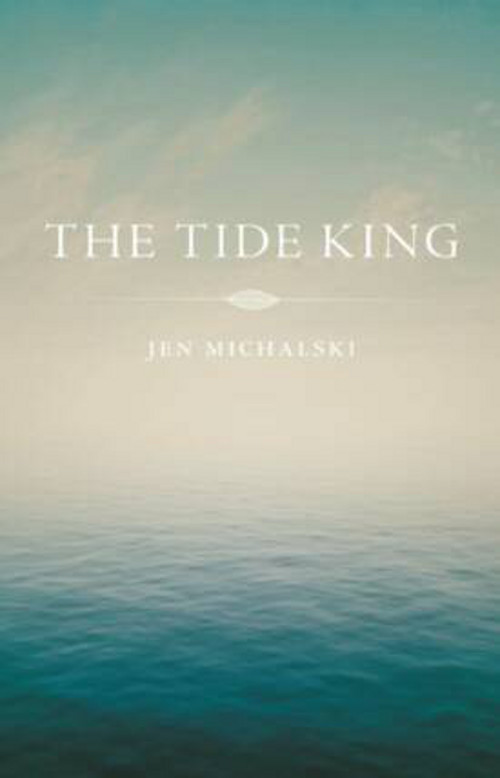
Magic and fantasy, the supra and the supernatural are having a good long run in modern fiction. I approve of blurred lines among genre but—grumpy cat impersonator that I am—nothing entrances me less than the promise that I shall be entranced. Because chances are I’m not going to be entranced by the magic of magic realism but jostled to earth by the lack of any real realism involved. I’m going to have to slog through a cast of characters you’re never going to see on the other elliptical, and traverse a rocky terrain of sub plot points that end in over wrought sequel-inducing paroxysm or, worse, myth. Chances are I probably will not be served enchantment. Chances are that I’ll mainly have been robbed of four hours of my life I will never get back.
This grouchy intro is all by way of suggesting there is an alternative. One could write a novel with vivid, dimensional characters that are all kinds of human, caught up in a story that defies logic but not sense. For that experience you might want to read Jen Michalski’s wonderful, and yes, magical novel The Tide King. This novel takes the form of intersecting narratives that cross a couple of centuries, with characters that are bound together by an herb that when ingested, bestows immortality with mixed results. And haven’t we always secretly wondered through the many tales of vampires and eternal creatures of the night, if eternity is not all that it’s cracked up to be? Michalski has. And her not entirely-original-plot device turns this question into a meditation on life’s meaning, love’s hope, the fragility of all our connections as well as one that never forgets it is a story, told in situations, about people.
From the earliest scenes her story telling skills shine with precision. This is a writer with keen insight, with that rare authoritative gift for the poetry of detail. Troops landing at Omaha beach during the Second World War ride in boats “their helmets clicked together like teeth.” Elsewhere they sprawl after bloody battles where “the gray of the sky ate the smoke.” Beneath these chattering helmets are Stanley and Johnson (named for explorers?) and their friendship, life and un-death sets the novel in motion. By starting in war, Michalski sounds a note on the theme of senseless death but because we are in the hands of an expert story teller, the reader isn’t paying attention to that—we are racing through the pages to find out what this narrative has to do with some gypsies in Reszel, Poland in 1800. And as pieces fit into this sophisticated and brilliant puzzle of a novel, it is the stories that draw us in, as well as the real problems of characters we come to know through the writer’s skill. Here a description of the contemporary teenager Heidi, an ugly girl “Things that should have grown out, grew in and things that should have stayed in grew out.” This is the asymmetry that defies any standard of beauty but, as usual Michalski is also serving a deeper thematic purpose. Ugliness, like the inescapable presence of death that, for some characters has become the inescapable presence of life, is only one example of destinies we cannot control. For Heidi, as with many of the characters in The Tide King, attempts at changing destiny comes with unforeseen and unforeseeable consequences.
Heidi, miserably bullied, motherless and “adopted” by a drunk, a girl who has once considered anorexia as a possible answer to her budgetary difficulties, listens as her drunken, but affectionate stepfather tries to gift her with eternal life:
“Listen I got this diary,” he pressed an old datebook from the drugstore into her hands. “It ain’t much but I’ve been scribbling down my memoirs and what I remember of my family. I’ve been wanting for you to know your roots. “
“What about the herb?”
“I’m giving it to you. Don’t ever feed it to me in the event of my demise—I don’t want to find out if it works. I want to die as soon as I am eligible for its benefits. But maybe you can use it somehow—a science experiment or something.”
“You’re giving me an immortal herb for a science experiment?”
“This is all I’ve got.” He put the baggie and datebook on her night table. “I know it ain’t no Corvette. I got to take a piss.”
Life everlasting, it ain’t no Corvette.
Saxifrage is the herb in that baggie. I’m guessing for an author who uses The Love Song of Alfred J. Prufrock as a plot point, that this is not coincidental. William Carlos Williams tell us “Saxifrage is my flower that splits the rocks.” Eternal life does split the rock in us, our bedrock belief, wherever it falls on the spectrum, that it is temporality that gives life its terrors, dreams, and ultimately it’s powers. This novel explores all these ideas as novels should, by respecting their examination in the context of story. But I am thinking of an earlier line from the Williams poem too, “through metaphor to reconcile / the people and the stones.” This The Tide King accomplishes wonderfully.
The Tide King, by Jen Michalski. Black Lawrence Press. 525 pages. $18.00, paper.
Merridawn Duckler has published fiction and nonfiction widely, the most recently in Farallon Review. She has published poetry narrowly, the most recent in So It Goes, literary journal of the Kurt Vonnegut Library. Her scripts have been performed from Oregon to Valdez, Alaska. Her residencies stretch from Yaddo to Jerusalem.
Check out HFR’s book catalog, publicity list, submission manager, and buy merch from our Spring store. Follow us on Instagram and YouTube. Disclosure: HFR is an affiliate of Bookshop.org and we will earn a commission if you click through and make a purchase. Sales from Bookshop.org help support independent bookstores and small presses.


Leave a comment